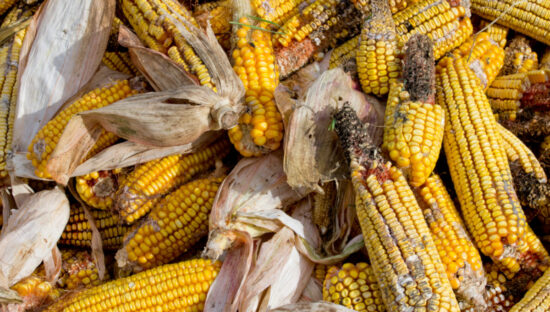Federal authorities have charged two Chinese researchers with smuggling Fusarium graminearum — a fungus that threatens crops and food safety — into the United States, raising concerns about risks to the food supply.
Yunqing Jian, 33, a postdoctoral researcher at the University of Michigan, and her boyfriend, Zunyong Liu, 34, a researcher at Zhejiang University in China, face charges of conspiracy, smuggling goods into the United States, false statements, and visa fraud, according to a criminal complaint filed in Michigan federal court on June 3. The visa fraud charge stems from Jian allegedly misrepresenting her research intentions on her U.S. student visa application and Liu using a tourist visa to smuggle the fungus.
Liu was intercepted at Detroit Metropolitan Airport in July 2024 with four plastic bags of reddish plant material containing Fusarium graminearum, concealed in wadded tissues, along with filter paper carrying coded samples of the fungus, the FBI said. Liu initially denied knowledge of the materials but later admitted to hiding it, knowing importation was restricted, to conduct research at a University of Michigan laboratory where Jian worked.
Court documents allege Jian may have smuggled biological materials in 2022, possibly hidden in her shoe, though no charges were filed for that incident. In 2024, she allegedly coordinated a shipment of suspected Fusarium graminearum hidden in a textbook, but the contents were not fully identified before destruction.
Crop and health risks
Fusarium graminearum causes Fusarium head blight (FHB), a disease that devastates wheat, barley, corn and rice, leading to billions in global economic losses annually, according to the U.S. Department of Agriculture. The USDA estimates FHB causes more than $1 billion in annual damage to U.S. wheat and barley alone, with nearly $3 billion in losses since the 1990s.
The fungus produces mycotoxins such as deoxynivalenol (DON, or “vomitoxin”) and zearalenone, which can contaminate grains. These toxins can cause vomiting, liver damage and reproductive issues in humans and livestock. Consuming contaminated grain may lead to acute illness, with long-term exposure potentially increasing the risk of chronic conditions depending on toxin levels.
The food safety implications are significant. In the U.S., Fusarium outbreaks have historically caused substantial crop losses. A 1993 FHB epidemic in Minnesota and North Dakota led to widespread grain rejection because of high vomitoxin levels, prompting stricter monitoring. The FDA sets limits on DON in food and feed, with levels above 1 ppm considered unsafe for human consumption.
Investigators are conducting genomic sequencing to determine if the smuggled strain has unique traits, such as increased fungicide resistance or altered toxin production, but no results have been publicly released.
Official concerns and expert perspectives
United States Attorney Jerome F. Gorgon Jr. described the incident as a serious national security concern, citing Fusarium graminearum’s potential as an agroterrorism agent because of its ability to damage crops and produce toxins. However, experts note the fungus is already widespread in the U.S., and the small quantity suggests lab research rather than large-scale harm.
FBI Director Kash Patel highlighted concerns, stating, “This case is a sobering reminder of risks from unauthorized actions targeting our food supply.”
The case comes amid heightened U.S.-China tensions, with the Trump Administration announcing plans to revoke visas for Chinese students days before the charges were filed, potentially amplifying concerns about foreign researchers.
“Fusarium graminearum has been in the U.S. for over 125 years and is not listed as a top agroterrorism threat by the USDA,” Caitlyn Allen, a plant pathology professor emeritus at the University of Wisconsin-Madison, told ABC News.
University response
The University of Michigan, where Jian worked, condemned actions threatening national security and stated it received no Chinese government funding for the researchers’ work in the U.S. However, court documents indicate Jian received Chinese government funding for prior Fusarium graminearum research conducted in China.
Liu, who admitted to smuggling the fungus for research at a University of Michigan laboratory, was denied entry and returned to China. Since China has no extradition treaty with the U.S., his arrest is unlikely unless he returns.
Jian, currently detained, awaits a bond hearing.
Authorities are continuing to investigate the researchers’ motives and whether the smuggled samples pose a broader threat to public health and agriculture.
(To sign up for a free subscription to Food Safety News, click here.)



